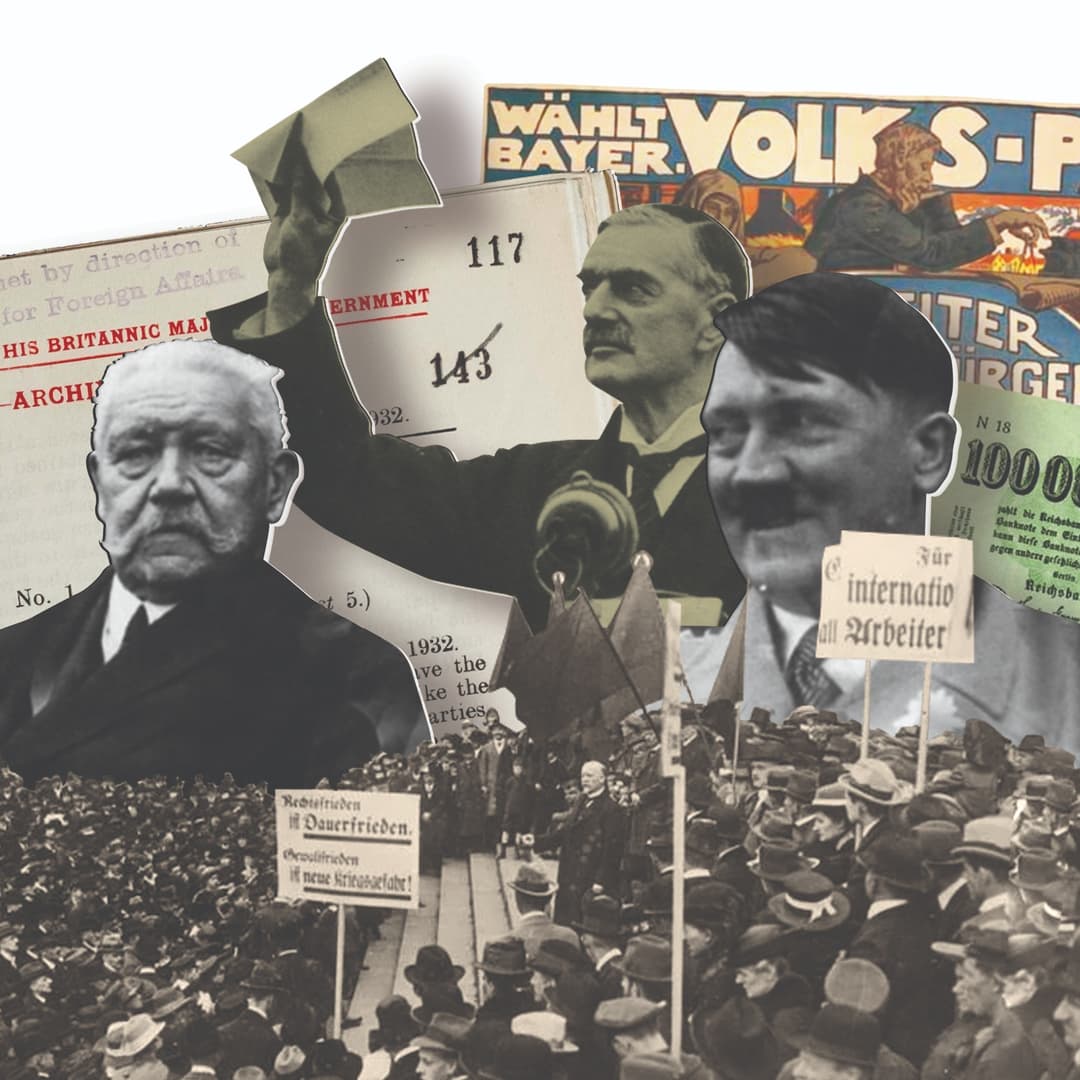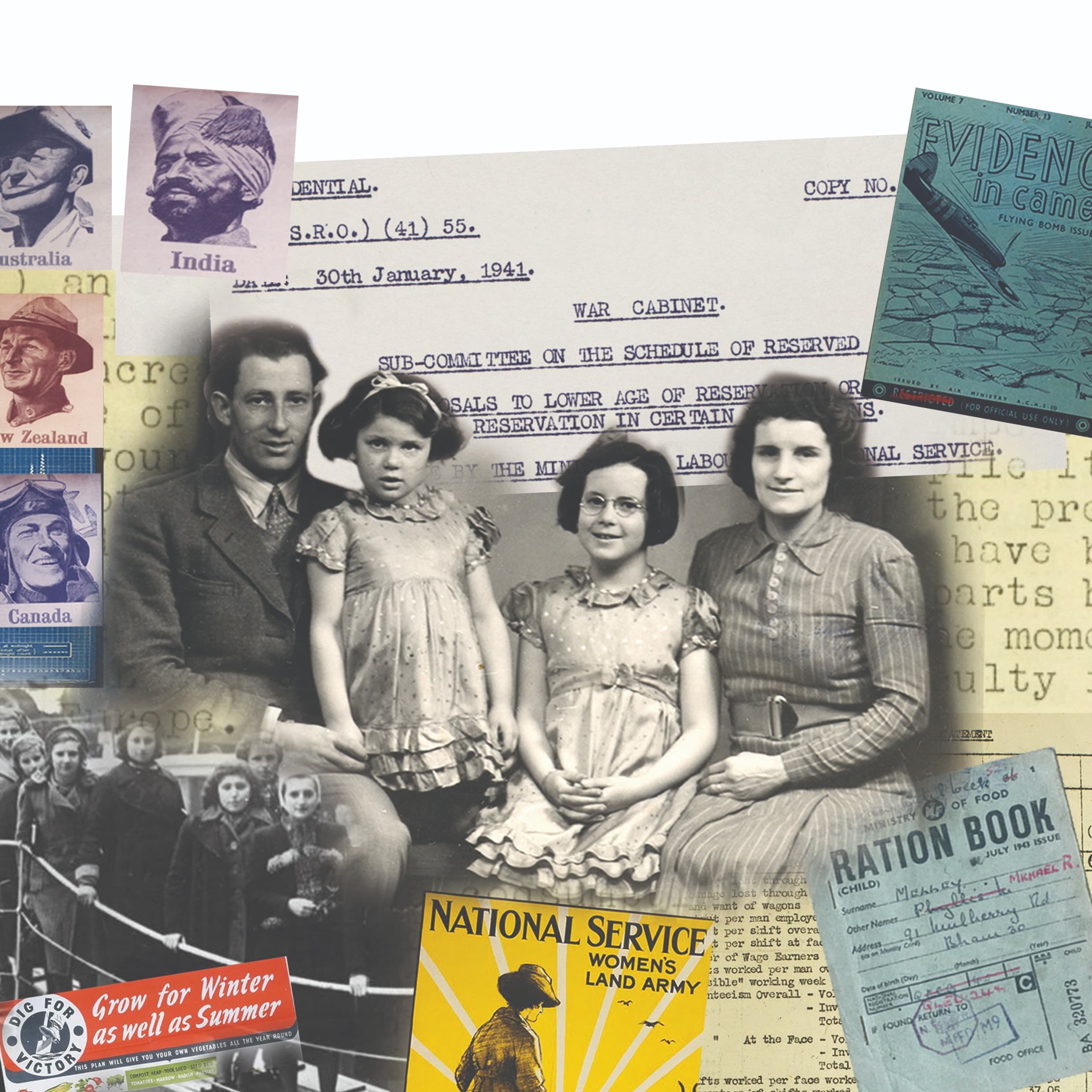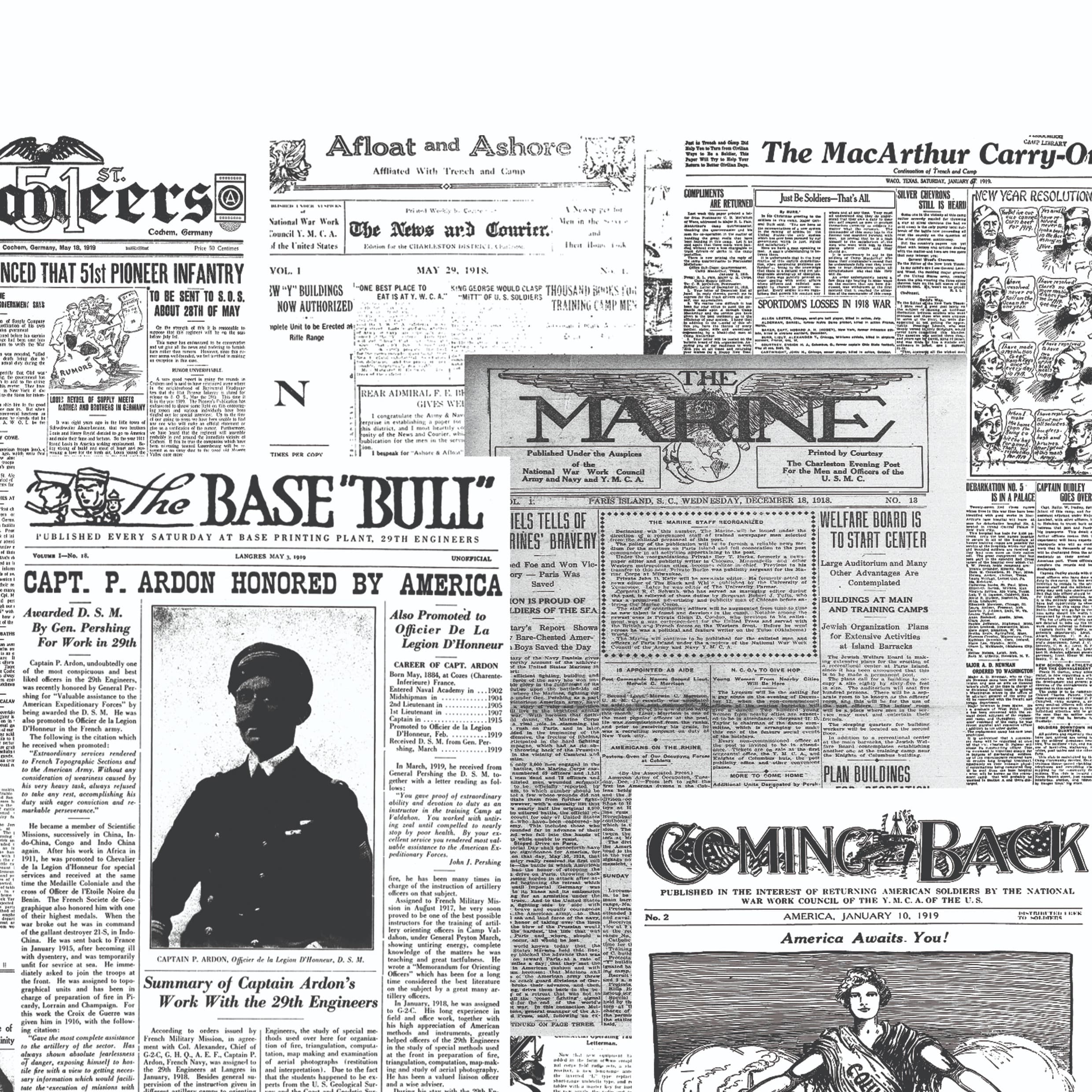Declassified government files show Western observations as Germany unraveled in the aftermath of WWI—the upheavals of the Weimar Republic and the rise of the Nazi regime.
From intelligence officers, political analysts, and observers on the ground—diplomatic cables, military reports, internal briefings, press summaries, personal accounts, and political transcripts—the files capture the global response to the rise of fascism.
At a glance
600,000
600,000 pages—every item in the National Archives FO 371 series marked Germany or Rhineland has been digitized
1918–1939
Details of war's aftermath and recovery, the Great Depression, and Hitler's rise.
Key events covered, Weimar Republic and early 1920s
The German Revolution of 1918-1919
Allied occupation of the Rhineland
The peace treaties, including the Treaty of Versailles
The Spartacist uprising of January 1919
Reichstag elections & cabinet formation
Hyperinflation, 1923
The Beer-Hall Putsch and Hitler’s trial
The Dawes Plan
The Kellogg-Briand Pact
Key events covered, rise of the Nazi Party to 1939
The Reichstag fire
Hitler appointed Chancellor
The creation of concentration camps
The passing of anti-Semitic laws
The banning of political parties
Germany’s departure from the League of Nations
The Night of the Long Knives
The Berlin Olympics
The 1936 Italo-German Treaty and Mussolini
Anschluss with Austria
Bombing of Guernica and the Spanish Civil War
Invasion of Czechoslovakia
Nazi-Soviet Non-Aggression Pact
Munich Agreement
Kristallnacht
Invasion of Poland
Sample reports
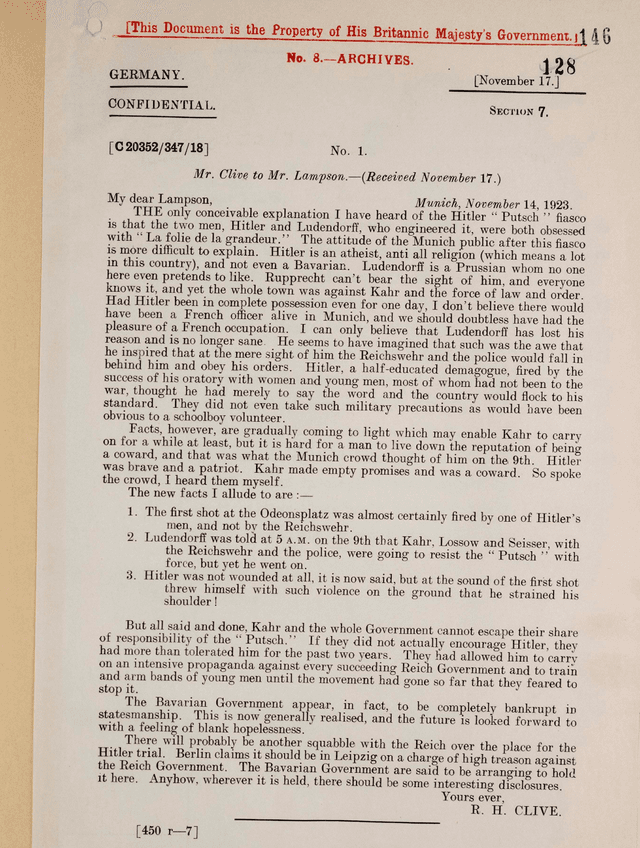
Bier Keller Putsch
Following Hitler's 1923 failed coup, “The Government cannot escape their responsibility … allowed him to carry on … and train and arm bands of young men until the movement had gone so far they feared to stop it.”
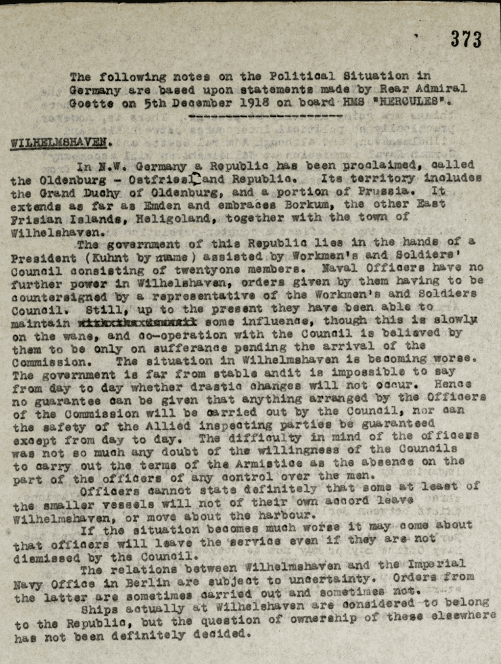
German Revolution, 1918
As the German empire descends into revolution at the end of World War I, the Foreign Office reports on the key event that marked the beginning of the end of the monarchy—the sailors’ mutiny at Wilhelmshaven.
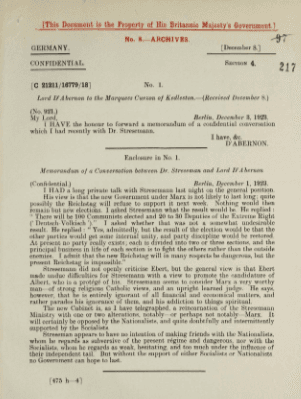
Stresemann is appointed Chancellor, 1923
Gustav Stresemann is appointed Chancellor at the height of the hyperinflation crisis. The report reveals that Stresemann foresaw a “Nationalist reaction” as the greatest threat.
Our editorial board
Want a trial?
Free, 30-day trial offered with training
Flexible pricing options, tailored to your institution's needs
Ask your sales rep about collection packages that offer the best value
